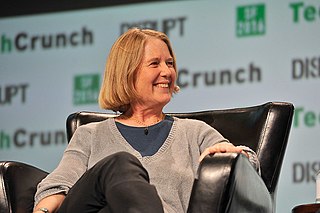A Quote by Michael Lewis
All that was clear that the profits to be had from smart people making complicated bets overwhelmed anything that could be had from servicing customers, or allocating capital to productive enterprise.
Related Quotes
The idea that the profits of capital are really the rewards of a just society for the foresight and thrift of those who sacrificed the immediate pleasures of spending in order that society might have productive capital, had a certain validity in the early days of capitalism, when productive enterprise was frequently initiated through capital saved out of modest incomes.
I think maybe 50 years ago people and businesses felt like they had to choose between maximizing profits and making customers happy or making employees happy, and I think we're actually living in a special time where everyone's hyperconnected, whether through Twitter or blogs and so on. Information travels so quickly that it's actually possible to have it all, to make customers happy through customer service, to make employees happy through strong company cultures, and have that actually drive growth and profits.
There's a few historical reasons for why git was considered complicated. One of them is that it was complicated. The people who started using git very early on in order to work on the kernel really had to learn a very rough set of scripts to make everything work. All the effort had been on making the core technology work and very little on making it easy or obvious.
I've been fortunate to have had the life I had prior to Hollywood. I wasn't starving, I was going to eat the next day. I came to Hollywood wanting a career that had longevity, and I wasn't afraid to take risks because I had a dollar in the bank. I wasn't driven by money as much as I was driven by making a successful transition. And I was smart enough to know that I certainly didn't have all the answers and I needed to surround myself with smart people and be willing to take risks and be willing to fail.
All people, entrepreneurs as well as non-entrepreneurs, look askance upon any profits earned by other people. Envy is a common weakness of men. People are loath to acknowledge the fact that they themselves could have earned profits if they had displayed the same foresight and judgment the successful businessman did.
Starting my own business was kind of a wakeup call in a number of different ways. I had to meet a payroll every week, and we had to satisfy customers, and we had competitors that we had to compete with in order to have those customers come into our stores, and we had to compete with other employers for our employees.
You know what works in venture capital? A group of incredibly smart, connected people who have the financial wherewithal and risk appetite to make multi-million dollar bets on unproven ideas and inexperienced founders. People who can make decisions quickly, and who spend their time trying to help entrepreneurs make the most of that cash.


































